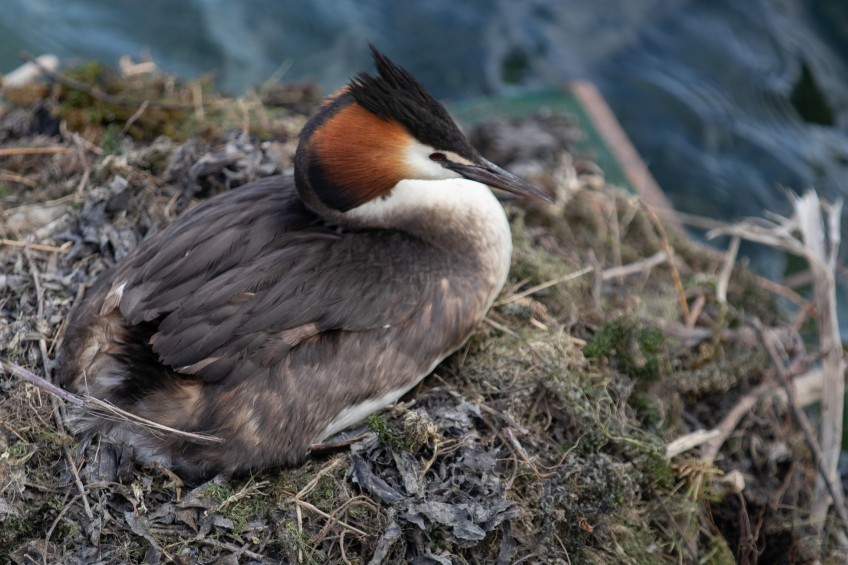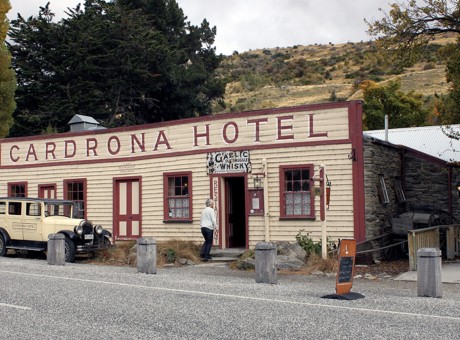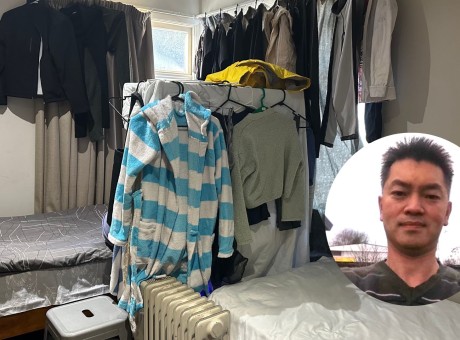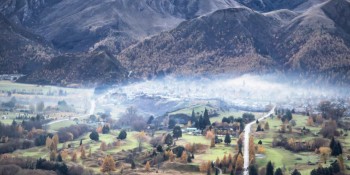What's been killing the 'bird of the century' in Hāwea?

Necropsies (animal autopsies) have been carried out on two of three crested grebes found dead on Lake Hāwea, and a local bird expert thinks they may be victims of their own species' success.
At the end of last year the endangered bird won Forest & Bird's coveted 'Bird of the Century' crown, now three dead grebes have been found within a fortnight, on separate days, on the lake foreshore.
After examining their bodies, retired zoologist John Darby thinks it is likely the birds died of starvation.
He says although there is a general lack of data on the bird populations in the Southern Lakes, it is his view these birds were "substantially" underweight.
"There was no food in the gizzard, the crop, or the stomach."
Crested grebes feed mainly on fish, and Mr Darby has come to the conclusion the dead birds were unable to find enough food.
He says in the absence of any noticeable trauma that could explain an inability to fish, their environment itself is likely the culprit.
"When you have these high fluctuations in lakes as you do in Hāwea, and you do in Wānaka, you really do end up with a lot of problems.
"The nests can be lost and, more particularly, the habitat which they'd (the birds had) selected, where they thought they could get food very easily, just disappears, and almost disappears overnight."
While Mr Darby has had well documented breeding success by using artificial nesting platforms that float on the lake to combat changing lake levels, he says food supply is not something he can control at all.
"So we're, sort of, hoisted by our own petard in some respects."
While he admits he does not know Lake Hāwea as well as he does Wānaka, Mr Darby has concerns the lake has fewer choice spots for the birds to make a home, and there is competition for what good spots there are as the population grows.
"They started off with one single pair in Anzac's Cove, and they did fantastically well for three years and the birds that were nesting there defended against all other comers until, I think it was, last year, when another two or three pairs tried to invade and breed there."
More recently, he says he has heard reports of up to 15 grebes across the lake towards Johns Creek.
"When I heard that, I thought, 'This is not going to be good,' because there's no way this number of birds, as a group, are going to be able to survive on that side of the lake."
He says it is on the birds themselves to explore and discover shallower spots around the lake edge where they can make a home with access to enough food to sustain them.
Petrina Duncan, another local zoologist and grebe guardian, says it is a harder ask for Hāwea based birds than Wānaka.
"It's a lake that drops very deep straightaway, and so it doesn't have those nice, shallow bays, like Wānaka does, where you get lots of plants growing, lots of little fish, and things like that.
"They're (the birds in Hāwea) are going to have to work harder to get fish and to find food, and so it would be pretty easy for one to start losing weight and then they wouldn't be able to get up and fly and move to another lake."
She suggests anyone who comes across a struggling or dead grebe should give the Wānaka Department of Conservation office a call in the first instance.
"Ideally, people probably shouldn't really be touching them...There is the added thing at the moment of Avian Bird Flu...It hasn't made it to New Zealand yet but we're aware that it could arise, so it's just best if people do not try to handle dead birds."
The crested grebe, or pūteketeke, received a record 350,000-plus verified votes from 195 countries to take out last year's Bird of the Century title after catching the eye of an influential international voter, American talkshow host John Oliver.
In addition to showcasing a giant pūteketeke puppet on his own show to encourage his audience to vote, Mr Oliver appeared on the The Tonight Show with Jimmy Fallon dressed in grebe garb and organised advertisements in Paris, Tokyo, London, Mumbai and Brazil.
Main image (Facebook/The Lake Wānaka Grebes)


























